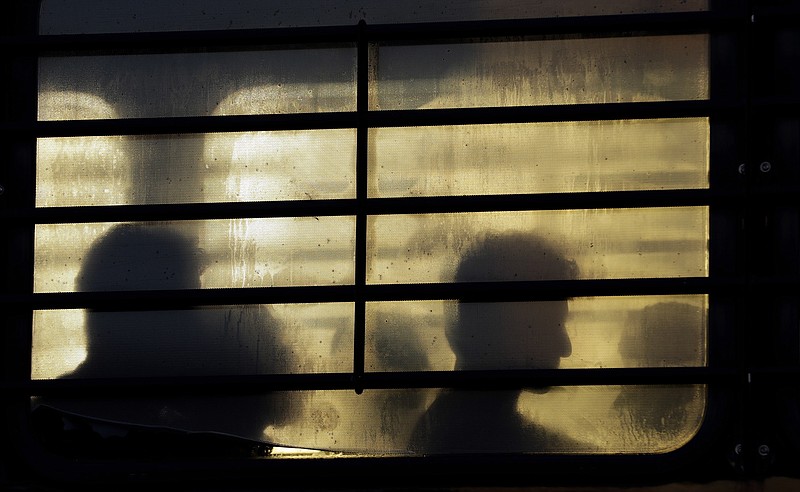HOUSTON (AP) - When officers led them out of a detention facility near the U.S.-Mexico border and onto a bus last month, the 12-year-old from Honduras and his 9-year-old sister believed they were going to a shelter so they could be reunited with their mother in the Midwest.
They had been told to sign a paper they thought would tell the shelter they didn't have the coronavirus, the boy said. The form was in English, a language he and his sister don't speak. The only thing he recognized was the letters "COVID."
Instead, the bus drove five hours to an airport where the children were told to board a plane.
"They lied to us," he said. "They didn't tell us we were going back to Honduras."
More than 2,000 unaccompanied children have been expelled since March under an emergency declaration enacted by the Trump administration, which has cited the coronavirus in refusing to provide them protections under federal anti-trafficking and asylum laws. Lawyers and advocates have sharply criticized the administration for using the global pandemic as a pretext to deport children to places of danger.
No U.S. agents looked at the video the boy had saved on his cellphone showing a hooded man holding a rifle, saying his name, and threatening to kill him and his sister, weeks after the uncle caring for them was shot dead in June. And even though they were expelled under an emergency declaration citing the virus, they were never tested for COVID-19, the boy said.
Three weeks after their uncle was killed, the children fled Honduras, crossing the U.S.-Mexico border alone. Under the normal process set out by U.S. law, they would have been referred to a government facility for youth and eventually placed with their mother. Instead, they were expelled July 24 after three days in U.S. detention and now live in Honduras with another uncle who is looking to leave the country himself.
U.S. Customs and Border Protection declined multiple requests for comment on the boy's story, and U.S. Immigration and Customs Enforcement also declined, saying the children had been in Border Patrol custody until they boarded a deportation flight operated by ICE.
Spokesmen for both agencies have refused to answer most questions about how they treat roughly 70,000 adults and children expelled under the emergency declaration issued in March. They have refused to say how they decide whether to expel children or where to detain them before expulsion, including in hotels where at least 150 unaccompanied children as young as 1 year old have been held.
Much of what's known about expulsions has come from the accounts of children like the 12-year-old boy, who recounted his experience to the Associated Press last week with a recall of details that makes him seem older.
The AP is not identifying the boy, his sister, their mother or where their mother lives in the U.S. because of fears the children are still targeted by the people who killed their uncle.
Dr. Amy Cohen, executive director of the advocacy group Every Last One, interviewed the boy several times and said she found him credible based on her conversations with hundreds of other immigrant children.
"When he has an opportunity to exaggerate or embroider his story, he absolutely does not," Cohen said. "And he is consistent with everyone he has talked to. There's no sense that the story is rehearsed."
Six children have died since 2018 after being detained by the Border Patrol, several in conditions that raised questions about how the agency treats children. The agency said it has instituted new medical checks and takes anyone determined to need additional care to a hospital.
Mark Morgan, the acting Customs and Border Protection commissioner, said Thursday that expulsions conducted under a section of U.S. public health law known as Title 42 were necessary to protect his agents. Morgan said 10 CBP employees have died after contracting COVID-19.
"There's no doubt that Title 42 has prevented more tragic loss among our own workforce," he said.
In court, meanwhile, the Trump administration has argued children it is seeking to expel are not entitled to protections under the Flores settlement, a 2-decade-old court agreement that sets standards for the detention of immigrant children.

